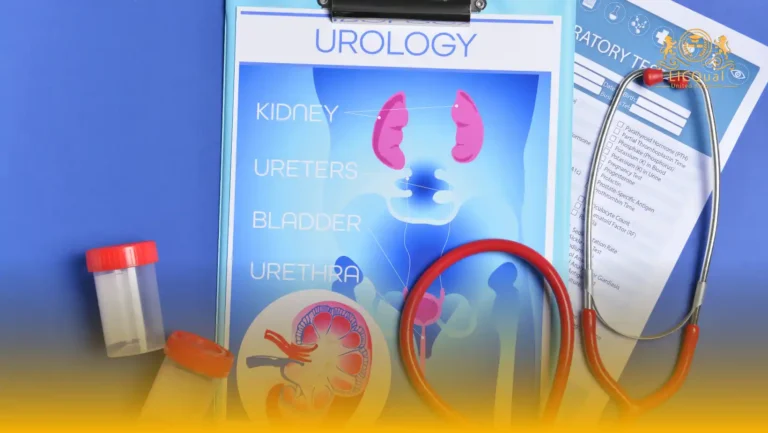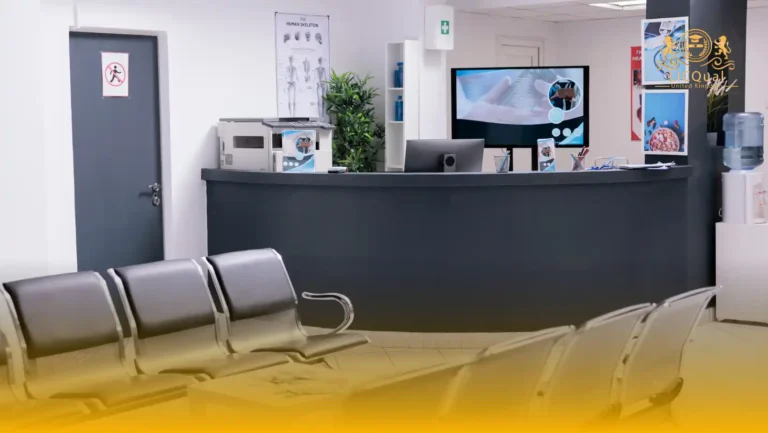The LICQual Level 7 Postgraduate Diploma in Gastroenterology (PgDG) is an advanced qualification designed for experienced healthcare professionals seeking to deepen their expertise in the diagnosis, management, and treatment of gastrointestinal disorders. This course is not intended for fresh entrants but is ideal for medical practitioners, gastroenterologists, hepatologists, nurses, and allied healthcare professionals who wish to enhance their career prospects, expand their knowledge, and strengthen their Continuing Professional Development (CPD).
Learners will gain comprehensive knowledge of digestive system anatomy and physiology, advanced diagnostic procedures, endoscopic techniques, management of gastrointestinal diseases, and the integration of evidence-based clinical practice. The curriculum emphasises the practical application of knowledge in complex clinical scenarios, enabling learners to contribute effectively to multidisciplinary healthcare teams and improve patient outcomes.
Centres delivering this qualification are required to employ competent and qualified staff, supported by modern facilities, laboratories, and extensive learning resources. This ensures learners receive expert guidance, hands-on experience, and the academic support necessary to succeed in this advanced programme.
Upon completion, learners will be equipped to assume leadership roles within gastroenterology services, contribute to clinical research, and implement best practices in patient care. This qualification represents a significant step for professionals committed to excellence, advanced clinical practice, and career progression in gastroenterology.
Course Overview
Qualification Title
LICQual Level 7 Postgraduate Diploma in Gastroenterology (PgDG)
Total Units
6
Total Credits
120
GLH
600
Qualification #
LICQ2200978
Qualification Specification
To enroll in the LICQual Level 7 Postgraduate Diploma in Gastroenterology (PgDG), applicants must meet the following criteria:
|
Qualification# |
Unit Title |
Credits |
GLH |
|---|---|---|---|
|
LICQ2200978-1 |
Advanced Gastrointestinal Physiology and Anatomy |
20 |
100 |
|
LICQ2200978-2 |
Diagnostic Techniques in Gastroenterology |
20 |
100 |
|
LICQ2200978-3 |
Management of Gastrointestinal Disorders |
20 |
100 |
|
LICQ2200978-4 |
Advanced Endoscopy and Interventional Procedures |
20 |
100 |
|
LICQ2200978-5 |
Gastroenterology Research and Evidence-Based Practice |
20 |
100 |
|
LICQ2200978-6 |
Professional Practice, Ethics, and Continuing Development |
20 |
100 |
By the end of this course, learners will be able to:
Unit 1: Advanced Gastrointestinal Physiology and Anatomy
By the end of this unit, learners will be able to:
- Analyse the structure and function of the gastrointestinal tract and associated organs.
- Evaluate digestive processes, nutrient absorption, and metabolic regulation.
- Assess gastrointestinal motility and neuroendocrine control mechanisms.
- Critically appraise pathophysiological mechanisms underlying common gastrointestinal disorders.
Unit 2: Diagnostic Techniques in Gastroenterology
By the end of this unit, learners will be able to:
- Demonstrate comprehensive knowledge of endoscopic, imaging, and laboratory diagnostic techniques.
- Interpret functional tests, biomarkers, and clinical findings in gastrointestinal practice.
- Apply diagnostic data to inform patient assessment and treatment planning.
- Critically evaluate emerging diagnostic technologies and their clinical applications.
Unit 3: Management of Gastrointestinal Disorders
By the end of this unit, learners will be able to:
- Develop evidence-based management plans for a range of gastrointestinal disorders.
- Apply clinical reasoning to complex cases involving liver, pancreatic, and biliary diseases.
- Integrate pharmacological, procedural, and lifestyle interventions in patient care.
- Critically evaluate current clinical guidelines and research to optimise treatment outcomes.
Unit 4: Advanced Endoscopy and Interventional Procedures
By the end of this unit, learners will be able to:
- Demonstrate knowledge of therapeutic endoscopy and interventional procedures.
- Perform risk assessment and apply safety protocols in endoscopic practice.
- Evaluate the indications, outcomes, and complications of advanced procedures such as ERCP and stenting.
- Integrate procedural expertise into multidisciplinary gastrointestinal care.
Unit 5: Gastroenterology Research and Evidence-Based Practice
By the end of this unit, learners will be able to:
- Design, conduct, and critically appraise clinical research in gastroenterology.
- Apply statistical analysis and research methodology to evaluate study findings.
- Integrate evidence-based research into clinical decision-making.
- Demonstrate ethical and patient-centred approaches in research practice.
Unit 6: Professional Practice, Ethics, and Continuing Development
By the end of this unit, learners will be able to:
- Demonstrate professional and ethical responsibilities in gastroenterology practice.
- Apply legal frameworks and clinical governance standards in patient care.
- Lead and collaborate effectively within multidisciplinary teams.
- Develop strategies for Continuing Professional Development (CPD) and reflective practice.
The LICQual Level 7 Postgraduate Diploma in Gastroenterology (PgDG) is designed for a wide range of learners. It is suitable for beginners who want to build a strong foundation in digestive health, experienced professionals seeking advanced specialization, and career changers looking to transition into gastroenterology. With CPD accreditation and international recognition, this postgraduate diploma provides the right balance of academic knowledge and practical skills for anyone aiming to grow in the field of gastroenterology.
Medical Graduates and Beginners in Healthcare
- Provides a structured introduction to gastroenterology and digestive health
- Builds confidence with beginner-friendly postgraduate learning
- Offers CPD-accredited training recognized internationally
- Helps new graduates gain credibility in clinical practice
- Creates a pathway to advanced medical specialization
Practicing Doctors and Gastroenterologists
- Enhances expertise in gastrointestinal disorders and liver disease management
- Strengthens evidence-based clinical decision-making
- Meets accreditation requirements for advanced medical practice
- Expands career opportunities in hospitals, clinics, and research centers
- Provides global recognition through the PgDG diploma
International Healthcare Professionals
- Offers a qualification recognized worldwide in gastroenterology
- Flexible online study options to fit busy schedules
- Aligns with international healthcare standards and practices
- Builds credibility with accredited postgraduate certification
- Opens pathways to global career advancement
Academic Researchers and Educators
- Supports professionals engaged in teaching or research in gastroenterology
- Provides advanced knowledge for curriculum development and training
- Strengthens academic credentials with a Level 7 postgraduate diploma
- Encourages publication and contribution to digestive health research
- Enhances authority in medical education and gastroenterology studies
Career Changers Entering Healthcare
- Designed for professionals transitioning into gastroenterology
- Offers structured learning for those without prior specialization
- Builds transferable skills in patient care and digestive health
- Provides internationally recognized accreditation for career shifts
- Opens opportunities in clinics, hospitals, and healthcare organizations
Healthcare Administrators and Policy Makers
- Equips leaders with insights into gastroenterology and digestive health systems
- Strengthens knowledge for policy development and healthcare management
- Provides evidence-based frameworks for decision-making
- Enhances credibility with CPD-accredited postgraduate training
- Supports roles in healthcare governance and medical policy
Professionals Seeking Career Growth
- Designed for those aiming to upgrade qualifications and expertise
- Provides advanced specialization in gastroenterology
- Enhances employability in competitive healthcare markets
- Offers CPD credits for continuous professional development
- Builds a pathway to leadership roles in digestive health and gastroenterology
Centres delivering the LICQual Level 7 Postgraduate Diploma in Gastroenterology must meet high standards to ensure exceptional learning experiences and learner success. Key requirements include:
- Qualified and Experienced Staff: All teaching and assessment personnel must be highly qualified in gastroenterology, hepatology, internal medicine, or related healthcare disciplines, with extensive professional and academic experience.
- Modern Facilities: Centres must provide access to clinical environments, endoscopy suites, laboratories, and practical training areas essential for advanced gastroenterology study.
- Comprehensive Learning Resources: Learners should have access to textbooks, academic journals, case studies, online platforms, and digital resources supporting in-depth learning and research.
- Practical Training Opportunities: Centres must enable learners to engage in hands-on exercises, simulations, clinical rotations, and case-based learning relevant to gastrointestinal care and advanced procedures.
- Robust Assessment and Evaluation: Centres must implement rigorous assessment strategies, including written assignments, research projects, and practical evaluations, to ensure learners meet all learning outcomes.
- Ethical and Legal Compliance: Centres must adhere to professional, legal, and ethical standards in gastroenterology education and clinical practice.
- Support for Continuing Professional Development (CPD): Centres should provide guidance for ongoing CPD, reflective practice, and professional development, enabling learners to apply advanced knowledge in clinical settings.
Meeting these requirements ensures learners receive world-class instruction, practical experience, and academic support, preparing them for leadership and advanced practice in gastroenterology.
Assessment and Verification
All units within this qualification are subject to internal assessment by the approved centre and external verification by LICQual. The qualification follows a criterion-referenced assessment approach, ensuring that learners meet all specified learning outcomes.
To achieve a ‘Pass’ in any unit, learners must provide valid, sufficient, and authentic evidence demonstrating their attainment of all learning outcomes and compliance with the prescribed assessment criteria. The Assessor is responsible for evaluating the evidence and determining whether the learner has successfully met the required standards.
Assessors must maintain a clear and comprehensive audit trail, documenting the basis for their assessment decisions to ensure transparency, consistency, and compliance with quality assurance requirements.







